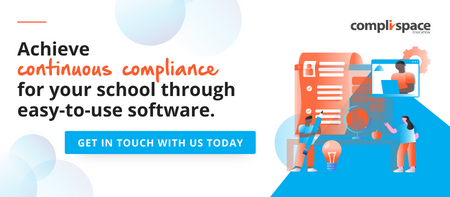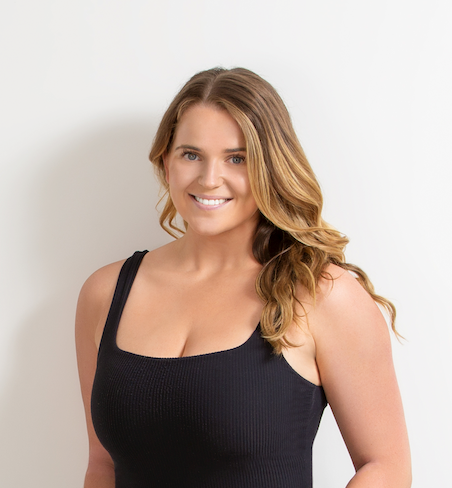This year’s Child Protection Week is focusing on “shining a light on children growing up safe and supported”. Consent Labs is a specialist provider offering holistic sexual, respectful relationships and consent education for school students as well as those who support them through their teenage and young adult years (i.e. their parents, carers and teachers). In this article, Rachel Tucker from Consent Labs writes about the level of consent education that the adults supporting today’s students generally have and what Consent Labs is doing to improve this for the students and those adults in their lives.
In terms of consent education, Australian society has significantly evolved over the past 18 or so months – with parties including select MPs, activists, parents, young adults and even students fighting for comprehensive sexuality and consent education to be included in the school curriculum. There has been a collective realisation that teaching consent in schools matters.
In February 2022, state and federal ministers unanimously agreed that consent education will be mandatory in all Australian schools. The national curriculum update was inspired by a movement sparked in February 2021 by consent activist, Chanel Contos, who shared her personal experiences throughout high school in relation to consent education – or lack thereof – and leveraged her social network to bring to light the importance of grass roots holistic consent education. Ms Contos will assist with the development of the upcoming 2023 national curriculum, which is intended to include age-appropriate content around the understanding of gendered stereotypes, coercion, and power imbalances.
Consent Education: The Millennials and Gen X Experience
While this education is an excellent step in the right direction, it’s important to note that one in two Australian adults are ‘confused’ by the definition of consent possibly due to the lack of consent education available when these now adults were school aged.
Less than 10 years ago, high school aged women were being educated on how to protect themselves through self defence when a young man would ‘inevitably’ attack them.
“Elbow in the eyes, punch the throat, kick the balls – that will stop him, girls.”
These women were indirectly taught, in their most formative years, that it was their responsibility to fight off men, or other people, that intended to attack, hurt, or sexually assault them – a lesson that wasn’t considered necessary to teach their male counterparts because, well, “they’ve learnt how to defend themselves”. For an entire generation of school aged children, the education system aimed to address the symptom – not the cause – of societal consent issues, in a way that does nothing but frighten.
On top of this, Millennial and Gen X generations did not receive comprehensive sexual education. They were never educated about queer relationships, the influence of cultural and linguistic diversity, the meaning of gender including non-binary identity and transgender people, the potential for an imbalance of power in relationships and coercion – all of which are crucial learnings. Furthermore, the typical PDHPE curriculum taught women about the male genitalia, including how to put on a condom, with no equivalent teachings about female genitalia and female pleasure which are considered to be important aspects of modern sex education.
This lack of consent and sexual education experienced by many in their formative years has led to a generation of parents and teachers who for the most part are ill-equipped, uninformed, and uncomfortable to openly talk to the current generation of children about these topics that they will be learning about in school with the upcoming changes to the national curriculum.
What Should Schools Do?
As School Governance stated in March 2021 “It is encouraging that so many schools have been engaging in conversations about consent education”.
Many schools are thinking about actions that they can take to address concerns around sexual violence among their students. Some measures that schools can take include:
- providing avenues for students to participate in decisions that affect them, including decisions and discussions around consent education through a student body such as an SRC or prefects
- involving parents and the broader school community in discussions around sexual harassment, sexual assault and consent education
- ensuring that students have, and are informed about, safe ways to disclose incidents of sexual assault/harassment. This should include an anonymous pathway for students to report incidents and concerns
- ensuring that students have access to appropriate support and counselling to discuss any concerns related to sexual assault/harassment.
Schools should use a specialist external provider who can provide coordinated consent education to students, teachers and parents and complement existing delivery by staff.
Consent Labs
Consent Labs is a not-for-profit organisation whose mission is to change the culture around sexual education by sparking meaningful conversations. It provides holistic sexual, respectful relationships and consent education, for students and staff in school settings, but also for parents. Consent Labs seeks to educate not only the students who will be directly facing these issues as they move through their teenage and young adult years but also the adults that they look to for guidance and support i.e. their parents, carers and teachers. The organisation provides workshops and seminars to schools (secondary and tertiary) across the country, and has reached over 20,000 people with tailored content that engages and educate students and parents.
Consent Labs’ workshops cover a number of topics and issues for students including what everyday consent looks like, practising consent language, boundary setting, recognising and responding to sexual harassment and sexual assault, healthy relationships, consent when alcohol and drugs are involved and consent when technology is involved.
Consent Labs’ Impact
In term two of 2022 alone, Consent Labs reached 5,000 students across New South Wales, Victoria, Queensland, the Australian Capital Territory and Western Australia with 94 per cent of participants rating their understanding of consent as ‘good’ after the workshops, compared to 61 per cent before attending. 91 per cent of participants provided feedback that they confidently walked away with a practical takeaway.
Conclusion
As the national consent education curriculum is rolled out in 2023, it’s important to continue bridging the gap between young people and adults to spark meaningful and effective conversations at home and school. Organisations like Consent Labs recognise that many parents, carers and teachers did not receive consent and respectful relationships education themselves, so they have consciously created tools and resources to equip and empower this audience when facing questions asked by their children or students.





